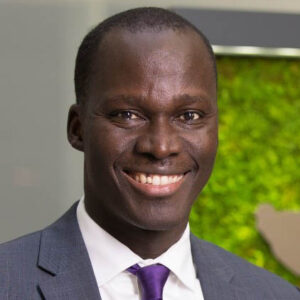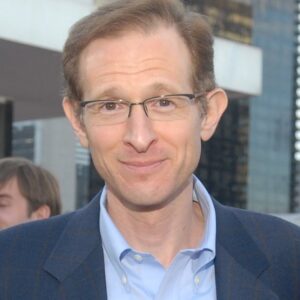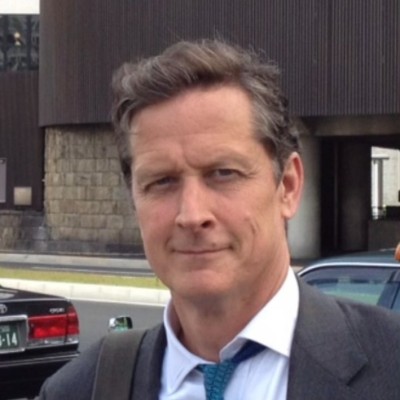The World Bank & IMF: Navigating Great Power Competition
Virtual Briefing Series
Tuesday, April 9th, 2024 | 12:00 PM – 1:00 PM ET
The International Financial Institutions (IFIs), including prominent entities like the World Bank and the International Monetary Fund (IMF), have long been pillars of global economic stability and development. However, critics argue that these institutions were mainly designed after World War II, with structures that may not effectively address contemporary challenges such as climate change and social inequalities. Moreover, the emergence of a new era marked by the rivalry between the United States and China has further complicated matters. China’s growing influence as a creditor, alongside its unique lending practices that diverge from traditional IFIs, presents novel challenges in addressing sovereign debt crises. As organizations like the World Bank and IMF grapple with these complexities, what reforms are needed to align IFIs with current global realities? How can these institutions navigate the geopolitical tensions between the U.S. and China while fulfilling their mandates? What role should the U.S. play in shaping the future of these institutions amidst evolving global dynamics? What are the perspectives of developing countries?
Join us for a conversation on Tuesday, April 9 from 12 PM to 1 PM ET between Dr. Daouda Sembene, Distinguished Non-Resident Fellow at the Center for Global Development and Former Executive Director of the International Monetary Fund; and Dr. Benn Steil, Senior Fellow and Director of International Economics at the Council on Foreign Relations when they will answer these questions and more. The conversation is moderated by James Upton, Network 20/20’s Board Member and former Chief Strategic Officer on the Emerging Markets Equity team at Morgan Stanley
COULDN’T ATTEND OUR EVENT? Don’t worry. You can watch it below
SPEAKERS:
Dr. Daouda Sembene
 Daouda Sembene is the founder and CEO of AfriCatalyst, a global development advisory based in Dakar, Senegal. He is affiliated with the Washington-based Center for Global Development (CGD) as Distinguished Nonresident Fellow.
Daouda Sembene is the founder and CEO of AfriCatalyst, a global development advisory based in Dakar, Senegal. He is affiliated with the Washington-based Center for Global Development (CGD) as Distinguished Nonresident Fellow.
Daouda was an Executive Director of the International Monetary Fund where he represented 23 African countries on the Executive Board. During his IMF board tenure, he chaired the statutory Board Committee that was tasked with strengthening collaboration at the board level between the IMF and other international institutions, notably the World Bank Group, the United Nations, and WTO. In addition, he chaired the IMF Executive Directors’ Working Group on Diversity and Inclusion and the IMF Executive Directors’ Small States Working Group. He served as a member of the IMF Executive Board’s Gender Diversity Working Group and the IMF Executive Directors’ Fragile States Working Group. He was also appointed as member of the IMF Executive Board Evaluation Committee and IMF Board Working Group on the FY18 Evaluation of the Performance of the IMF Managing Director and the Executive Board.
After his board tenure, Daouda served in his home country as senior economic advisor to the President of Senegal with ministerial rank. More recently, he was appointed by the Chairperson of the African Union as Special Advisor on food security. He has been invited to provide expert testimony on IMF and global economic and geopolitical issues at US Congressional hearings. He has provided consulting services to the IMF, the World Bank, the United Nations, and the G20 Saudi Secretariat during the Saudi presidency of the G20. His work and views on African and global economic issues have been featured in prominent print and broadcast media including BBC, CNBC Africa, Reuters, Bloomberg, Le Monde, Voice of America, Project Syndicate, Jeune Afrique, TRT World, CGTN, World Politics Review, and Le Point Afrique.
Prior to serving as Executive Director of the IMF, Daouda spent most of his professional career in that institution, assuming various positions at the Research Department, the Independent Evaluation Office, and the Executive Board. He also served as senior advisor to the Minister of Economy, Finance, and Planning in Senegal and, in that capacity, he was appointed as IMF and World Bank Alternate Governor for Senegal. He also served briefly as Head of the Financial Sector and Competitiveness General Directorate in the same ministry. He began his career at the World Bank in Washington as part of a team of lecturers in macroeconomic management.
Daouda holds a PhD in development economics from American University in Washington and master’s degrees from George Washington University, the University of Montreal, and the University of Dakar. He has authored, and contributed to several publications, including a book on macroeconomic policy in fragile countries and another one focused on low-income countries’ race to the next income frontier.
Dr. Benn Steil
 Benn Steil is senior fellow and director of international economics at the Council on Foreign Relations in New York. He is the lead writer of the Council’s Geo-Graphics economics blog, and the creator of eight web-based interactives tracking Global Monetary Policy, Global Imbalances, Global Growth, Global Trade, Global Energy, Sovereign Risk, China’s Belt and Road, and Central Bank Currency Swaps. Prior to his joining the Council in 1999, he was director of the International Economics Programme at the Royal Institute of International Affairs (Chatham House) in London. He came to the Institute in 1992 from a Lloyd’s of London Tercentenary Research Fellowship at Nuffield College, Oxford, where he received his MPhil and DPhil (PhD) in economics. He also holds a BSc in economics summa cum laude from the Wharton School of the University of Pennsylvania.
Benn Steil is senior fellow and director of international economics at the Council on Foreign Relations in New York. He is the lead writer of the Council’s Geo-Graphics economics blog, and the creator of eight web-based interactives tracking Global Monetary Policy, Global Imbalances, Global Growth, Global Trade, Global Energy, Sovereign Risk, China’s Belt and Road, and Central Bank Currency Swaps. Prior to his joining the Council in 1999, he was director of the International Economics Programme at the Royal Institute of International Affairs (Chatham House) in London. He came to the Institute in 1992 from a Lloyd’s of London Tercentenary Research Fellowship at Nuffield College, Oxford, where he received his MPhil and DPhil (PhD) in economics. He also holds a BSc in economics summa cum laude from the Wharton School of the University of Pennsylvania.
Dr. Steil has written and spoken widely on international finance, monetary policy, financial markets, and economic and diplomatic history. He has testified before the U.S. House, Senate, and CFTC. His most recent book, The World That Wasn’t: Henry Wallace and the Fate of the American Century, was published in January 2024. Presidential historian Richard Norton Smith proclaimed it a “groundbreaking biography.” The Wall Street Journal declared it “definitive,” and Publishers Weekly called it “meticulous,” “vivid,” and “rewarding.” His previous book, The Marshall Plan: Dawn of the Cold War, won the New-York Historical Society’s 2019 Barbara and David Zalaznick Prize for best work on American history, won the American Academy of Diplomacy’s 2018 Douglas Dillon Prize, won the Honorable Mention (runner-up) for the 2019 ASEEES Marshall D. Shulman Prize, was shortlisted for the Duff Cooper Prize, and is ranked number 3 among BookAuthority’s Best Diplomacy Books of All Time. Paul Kennedy in the Wall Street Journal called the book “brilliant,” the New York Times called it “trenchant and timely,” the Financial Times called it “elegant in style and impressive in insights,” and the Christian Science Monitor called it a “gripping, complex, and critically important story that is told with clarity and precision.” His earlier The Battle of Bretton Woods: John Maynard Keynes, Harry Dexter White, and the Making of a New World Order won the 2013 Spear’s Book Award in Financial History, took third prize in CFR’s 2014 Arthur Ross Book Award competition, was shortlisted for the 2014 Lionel Gelber Prize (“the world’s most important prize for non-fiction,” according to The Economist), and was the top book-of-the-year choice in Bloomberg’s 2013 poll of global policymakers and CEOs. The Financial Times called the book “a triumph of economic and diplomatic history,” the Wall Street Journal called it “a superb history,” the New York Times called it “the gold standard on its subject,” and Bloomberg’s Tom Keene called it “the publishing event of the season.” His prior book, Money, Markets, and Sovereignty, won the 2010 Hayek Book Prize.
MODERATOR:
James Upton
 James Upton is Network 20/20’s Board Member, A Senior Portfolio Specialist and Chief Strategic Officer on the Emerging Markets Equity team at Morgan Stanley. He re-joined Morgan Stanley in 2006 and has 29 years of investment experience. Prior to re-joining the firm, James was a senior investment strategist at Northern Trust Global Investments. Previously, he was the Latin America equity strategist and later a global equity strategist at Credit Suisse First Boston. He began his investment career as an international economist at Merrill Lynch and spent nearly two years as a sovereign risk analyst at Morgan Stanley. Before graduate school, he was a reporter in Mexico City with United Press International. James received a B.A. in history from Middlebury College and an M.A. in economics and U.S. foreign policy from the School of Advanced International Studies (SAIS) of Johns Hopkins University. He holds his Series 7 registration.
James Upton is Network 20/20’s Board Member, A Senior Portfolio Specialist and Chief Strategic Officer on the Emerging Markets Equity team at Morgan Stanley. He re-joined Morgan Stanley in 2006 and has 29 years of investment experience. Prior to re-joining the firm, James was a senior investment strategist at Northern Trust Global Investments. Previously, he was the Latin America equity strategist and later a global equity strategist at Credit Suisse First Boston. He began his investment career as an international economist at Merrill Lynch and spent nearly two years as a sovereign risk analyst at Morgan Stanley. Before graduate school, he was a reporter in Mexico City with United Press International. James received a B.A. in history from Middlebury College and an M.A. in economics and U.S. foreign policy from the School of Advanced International Studies (SAIS) of Johns Hopkins University. He holds his Series 7 registration.
OUR VIRTUAL BRIEFINGS ARE OPEN AND FREE FOR PEOPLE AROUND THE WORLD
We are trying our best to keep our community informed about foreign affairs, and we would appreciate if you can support us to keep this virtual briefing series going. No amount is too small.

